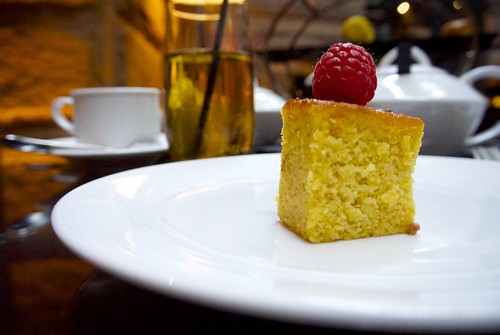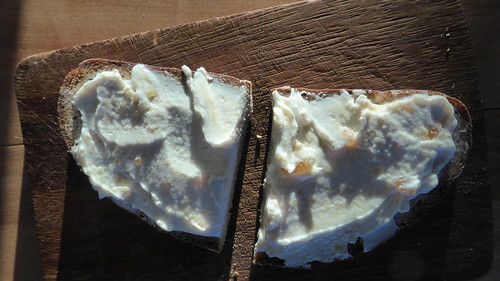Untranslatable German Words: das Anstandsstück Posted by Constanze on Apr 26, 2017 in Culture, Food, Language
Hello and welcome to another edition of untranslatable German words, where I bring you the quirkiest, funniest, most unusual words the German language has to offer – and ones that are difficult to find a direct translation for! Today’s word is das Anstandsstück.

The last bit of cake = das Anstandsstück. Foto: sidneiensis on flickr.com under a CC licence (CC BY 2.0)
What does das Anstandsstück mean?
Das Anstandsstück refers to the last bit of food at a party or event – a bit of food that everybody wants, but that no one is to take. Like the final piece of a cake, for example. There seems to be unwritten rule in Germany that you simply do not touch the last piece of food unless it is offered to you.
What is the literal translation of das Anstandsstück?
It is made up of the words der Anstand (decency/manners) and das Stück (piece). The ‘decency piece’. This is a great example of where the word itself points at the social implications of something – in this case, the social implication of eating the Anstandsstück!
How would you use das Anstandsstück in a sentence?
Use it as if you are talking about any item of food.
Wir haben gegesssen, bis nur das Anstandsstück übrig war
We ate until the Anstandsstück was the only thing left.
What is the nearest English equivalent to das Anstandsstück?
Urban Dictionary came up with a ‘shame piece’ – the last piece of something that, out of shame, nobody will eat. This is a pretty direct translation (there goes my theory of this being an untranslatable word) but I’ve never heard it being used in real life. Have you?
* * * * * *
As it’s related, I’d also quickly like to answer a blog comment from someone asking what ‘Hasenbrot’ is.
Das Hasenbrot

das Hasenbrot is only called das Hasenbrot once it’s come back home, uneaten. Foto: erix on flickr.com under a CC licence (CC by 2.0)
Das Hasenbrot literally translates to ‘rabbit bread’ and refers to a piece of bread that’s been taken on a school trip or to work, but come back home uneaten. Why exactly it is called ‘Hasenbrot’ is somewhat unclear; possibly because it’s a bit soggy by the time it comes home, and therefore only suitable for rabbits/animals to eat, or because the word was used to make daddy’s uneaten sandwiches sound ‘fun’ enough to his children (‘Jaaa, es gibt Hasi-Brot!’) so that they’ll eat them when he comes home from work. Das Hasenbrot is also known as die Knifte in other parts of Germany.
So there you have two more quirky German words which point at two opposing attitudes to leftover food! I hope you’ve enjoyed this post. If you have, take a look at some more unusual German words by clicking the ‘untranslatable German’ tag below.
Bis bald!
Constanze

Build vocabulary, practice pronunciation, and more with Transparent Language Online. Available anytime, anywhere, on any device.




Comments:
Oriella:
grazie Constanze! Also in Italy it is called il morso della vergogna (the shame bite) implying the shame you get if you eat up all the cake!
Anna:
@Oriella It exists in Spanish as well: “la verguenza” = shame
Sarah Falla:
Thank you so much, Constanze, for giving us an explanation of Hasenbrot. We thought it might just have been a family expression so it was good to know that you knew it too.
Can I also just say how much I enjoy reading your blogs- and how much I learn from them.
Sarah Falla:
With regard to the Anstandstück, I guess it is related to the English expression of “leaving something for Mr Manners”!